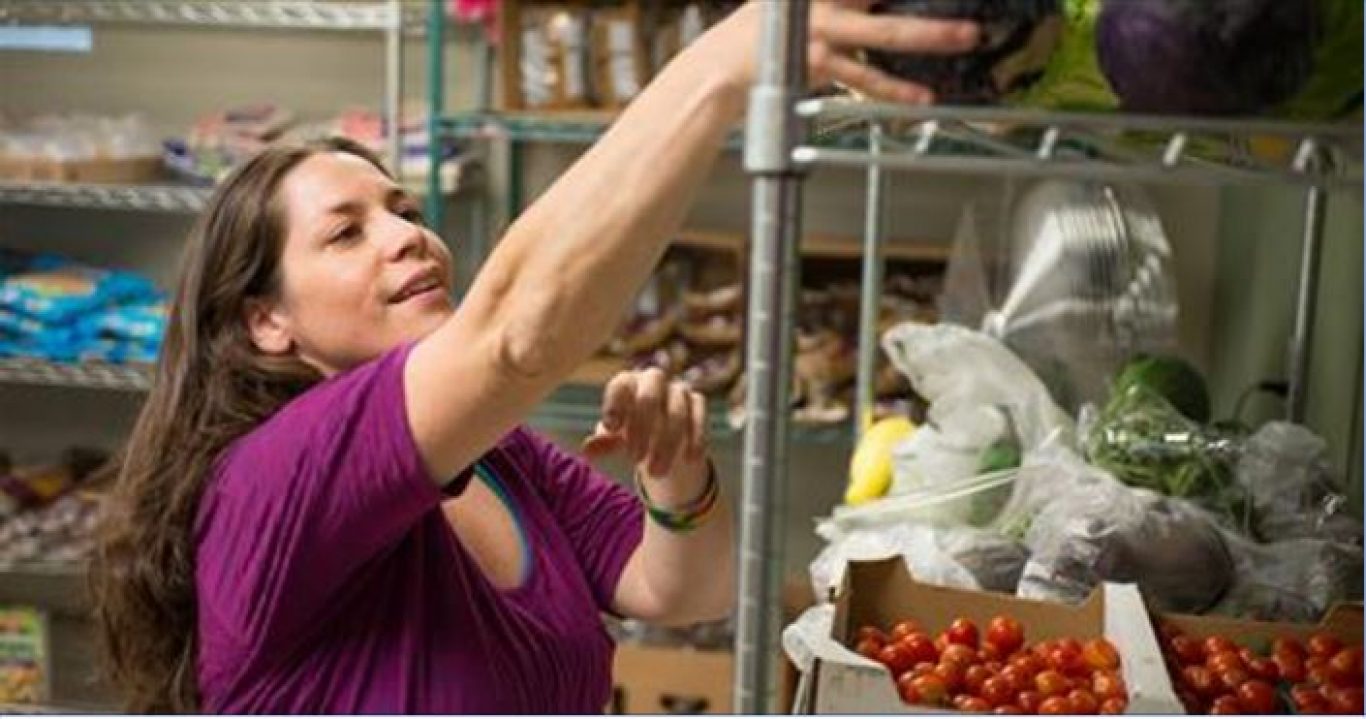High reward investment: How SNAP allowed one Oregonian to move forward – by David Sarasohn
High reward investment: How SNAP allowed one Oregonian to move forward – by David Sarasohn
January 17, 2017 – Cary Fardal thinks of her family’s time on SNAP (food stamps) as a U.S. government investment. The people she now works with at the Oregon State Hospital would probably agree.
 After graduating high school – “barely,” she says with an unrepentant grin – she spent years on Mount Hood, in the life that seems idyllic to a skiing Oregon teenager: running lifts, giving some lessons, and going on ski patrol. But eventually, after marrying and starting a family, she concluded – possibly at the end of a long ski trail – that grown-up life might call for a different identity.
After graduating high school – “barely,” she says with an unrepentant grin – she spent years on Mount Hood, in the life that seems idyllic to a skiing Oregon teenager: running lifts, giving some lessons, and going on ski patrol. But eventually, after marrying and starting a family, she concluded – possibly at the end of a long ski trail – that grown-up life might call for a different identity.
Say, as a dietitian.
It took a long time, starting in community college, moving to Portland State, then to Oregon Health Sciences University, ending in a mandatory unpaid internship. By the end, along with the degree and credential that made her immediately employable, Cary and her husband had two middle-sized children.
Along the way, she needed a little help.
When she was pregnant and had small children, Cary, like almost half of Oregon mothers, had the support of the Women, Infants and Children program. It provides fruits and vegetables, whole-grain breads and low-fat milk. Lots of people think WIC is a good idea, since those babies and small children will one day grow up – hopefully healthy.
And for six years, on and off, she and her family drew food stamps. Sometimes, the family’s help came to a few hundred dollars a month, providing as much as 90 percent of her family’s food budget, putting apples, vegetables and hamburgers on the table. Sometimes it was just the minimum, 10 or 20 dollars a month. And sometimes, when she was on a break from school and making sandwiches at Subway, her family wasn’t on food stamps at all. Every six months, at the times when she did qualify, she traveled to downtown Portland to fill out the paperwork.
“I was always moving forward,” she remembers of those six years. “I knew it wasn’t a long-term thing.”
It seems we could be coming into rough times for food stamps, the Supplemental Nutrition Assistance Program, described this January by 12 national nutrition advocacy groups as “our nation’s first line of defense against hunger.” Originally a bipartisan program advanced by Democrat George McGovern of South Dakota and Republican Bob Dole of Kansas – both at one point their parties’ presidential candidates – SNAP has become a political target. House Speaker Paul Ryan – now further empowered by Republican control of the Senate and the White House – has been introducing budgets to lump SNAP, Medicaid and other safety net programs into a less-funded block grant to the states. The programs, he warns sadly, lure “able-bodied people into lives of dependency and complacency” and “can create a powerful disincentive to get ahead.”
It’s an attitude that can produce snark and snorts directed toward clients using their SNAP cards in supermarket checkout lines. “I guess I got the occasional look in the store,” recalls Cary, although the looks would bounce off someone who always knew she was moving forward.
In that way, Cary was typical of a lot of food stamp recipients and families. Instead of the myth of permanent dependency, the Census Bureau reported in 2012 that more than 30 percent of clients collected food stamps for a year or less, another 17 percent for two years or less, and 14 percent for no more than three years. According to a calculation by the Center on Budget and Policy Priorities, 58 percent of SNAP families, and 62 percent of SNAP families with children – which means most SNAP families, like Cary’s – include someone who is working, like her husband. Families qualify for SNAP if the worker isn’t earning much – and in a country where the federal minimum wage hasn’t changed in a decade, that takes in a lot of families.
“I had the drive to go back to school and learn something,” recalls Cary. To anyone else driving forward, “I would definitely say just suck it up and get whatever help you can.”
After all, you’re an investment.
“I am sure,” she says with the same grin that described her high school record, “I have more than paid it back in my taxes.”
